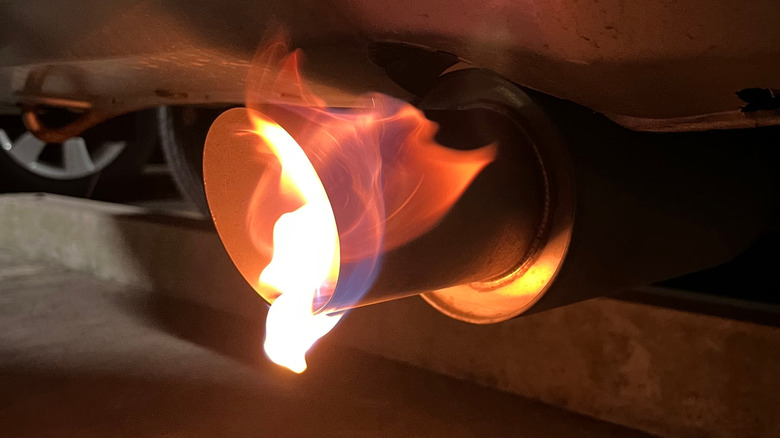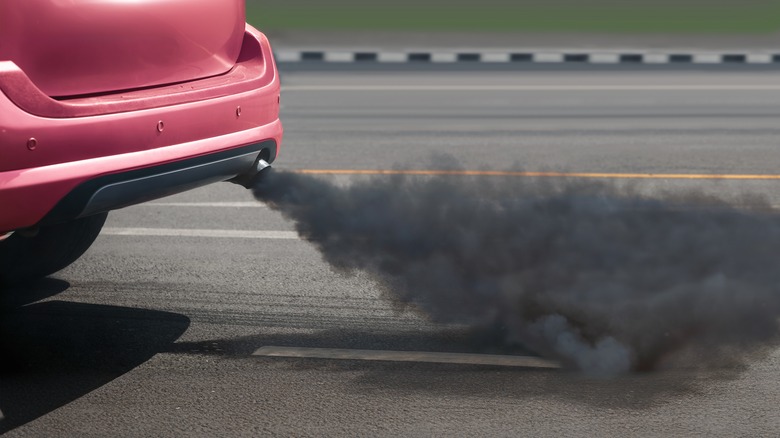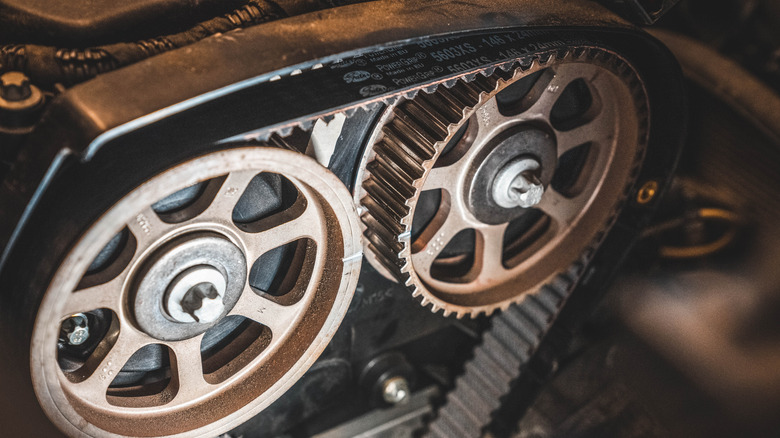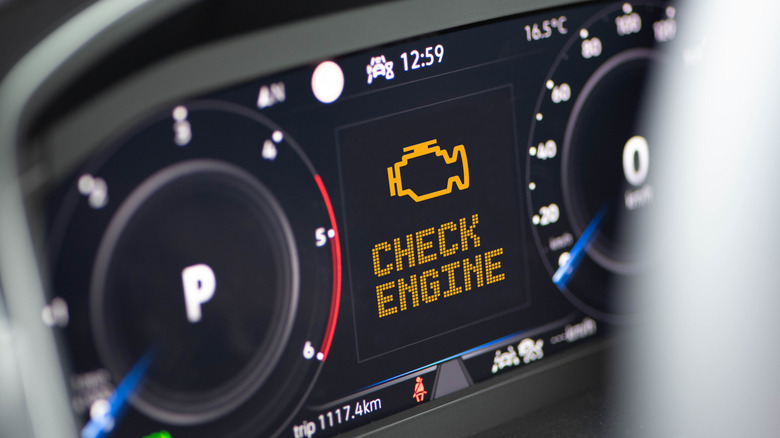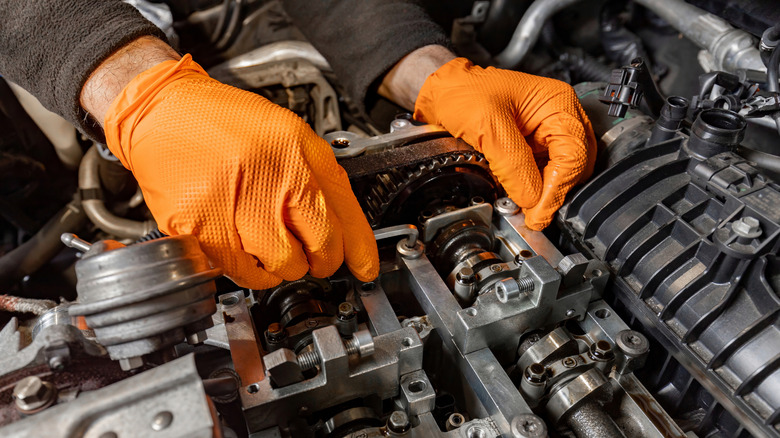What Does It Mean When A Car Backfires? (And What To Do If It Does)
Ever since we began trading horses for steel cages, cars have gone from being a luxury to a necessity. But when an issue arises, it can leave you puzzled and frustrated. One of the most stressful potential problems is engine backfiring, which is often accompanied by a loud pop or bang.
As someone who has spent years diagnosing and troubleshooting automotive issues, I've come across a lot of backfiring issues. Along with the unsettling noises it can produce, backfiring can also cause flames to shoot from the exhaust. If you're someone who's experiencing these issues for the first time, the signs can be alarming. However, if ignored, these problems could lead to costly repairs down the road.
Backfiring is a clue that your engine needs maintenance or repair. Typically, it's a signal that your engine's combustion is out of sync, and the issue could stem from several areas or mechanical issues. So, what causes backfiring, and what should you do if it happens?
What does it mean when a car backfires?
In a properly functioning engine, all combustion occurs within the cylinders. The process begins as the air-fuel mixture enters the combustion chamber. This is where the spark plug ignites it at the ideal moment, creating a controlled explosion that generates energy to drive the pistons and power the engine. After combustion is complete, exhaust gases exit through the exhaust system. When a car backfires, this process doesn't go quite so smoothly.
Backfiring happens when the air-fuel mixture ignites outside the engine's combustion chambers. This volatile reaction may happen in the intake manifold or somewhere in the exhaust system. This misfire can disrupt the engine's rhythm and strain its components. For instance, a sudden combustion burst can create immense pressure in areas that were not designed to handle it. Persistent backfiring could affect the drivability of the vehicle and damage parts such as the manifolds, intake and exhaust valves, or catalytic converter.
What causes a car to backfire?
Among the most common causes of backfiring is an improper air-fuel mixture. Typically, a lean mixture — where there's too much air and not enough fuel — burns slower. When your engine is running rich, or putting too much fuel in the mixture, unburned fuel vapors escape into the exhaust, where they combust. This is often caused by problems with either the oxygen sensor or the mass airflow sensor. A faulty exhaust gas recirculation (EGR) valve can also cause an imbalance between air and fuel.
Generally, backfires are a good indication that the engine's timing or fuel-air ratio is off. Timing issues disrupt the precise sequence in which the spark plug ignites the fuel. If the spark is fired too early or too late, this can lead to backfiring. When the spark plug ignites the mixture before the piston reaches the top of the compression stroke, the premature ignition creates excessive pressure that can escape through an open intake valve instead of pushing the piston downwards. Similarly, if the spark plug fires after the piston has already started its downward motion, unburned fuel is forced out of the chamber via the exhaust valve.
Backfiring can also be caused by mechanical issues, such as a damaged valve, a loose plug wire, or malfunctioning spark plugs. If you never change your car's air filter or change it less frequently than necessary, it will eventually become clogged. This leads to restricted airflow, which upsets the air-fuel ratio.
Your check engine light might indicate backfiring
Modern cars come with onboard diagnostics that may trigger a "check engine" light when a backfire occurs. However, it's a vague sign as the check engine light may point to several other issues. A check engine light can indicate a misfiring spark plug, a wiring issue, or a malfunctioning oxygen sensor. If your check engine light comes on, head to an auto parts store or repair shop and have your on-board diagnostics (OBD) system scanned.
Whether or not they cause backfiring, any of these conditions can also cause a dip in fuel mileage. If you find yourself refueling more frequently without a change in driving habits, it might be time to investigate the cause of this issue.
A car that is backfiring will usually also exhibit performance issues. You may notice reduced acceleration or a loss of power while driving. Your car might also idle roughly when you come to a stop. All of these problems occur because the engine is not running as well as it should and is wasting energy and fuel.
What to do when your car backfires
There are a few things you should check if your car is backfiring. Start by inspecting the spark plugs. Spark plugs are mounted at the top of each engine cylinder and ignite the air-fuel mixture inside the combustion chamber. When checking the plugs, look for signs of wear and tear. Dirty or worn-out plugs can sometimes fail to produce a strong enough spark to ignite the air-fuel mixture. Replacing faulty or fouled plugs can restore ignition performance and eliminate backfires.
Next, check the air filter. As mentioned above, a clogged air filter restricts airflow, which can disrupt the air-fuel mixture and result in backfires. Replacing the air filter can sometimes solve the issue and is a simple DIY task that you can do on your own. If a new filter doesn't correct the backfiring issue, the problem could lie with sensors that manage the air-fuel mixture, such as the oxygen sensor or the mass air flow sensor.
You might also need to check the fuel system. Make sure the fuel filter is clean and the fuel pump is functioning normally. An in-tank fuel injector cleaner and/or new fuel filter might restore fuel flow to normal and clear up the backfiring problem. If these remedies don't clear up the backfiring issue, it's possible you may be in need of a new timing belt or chain.
